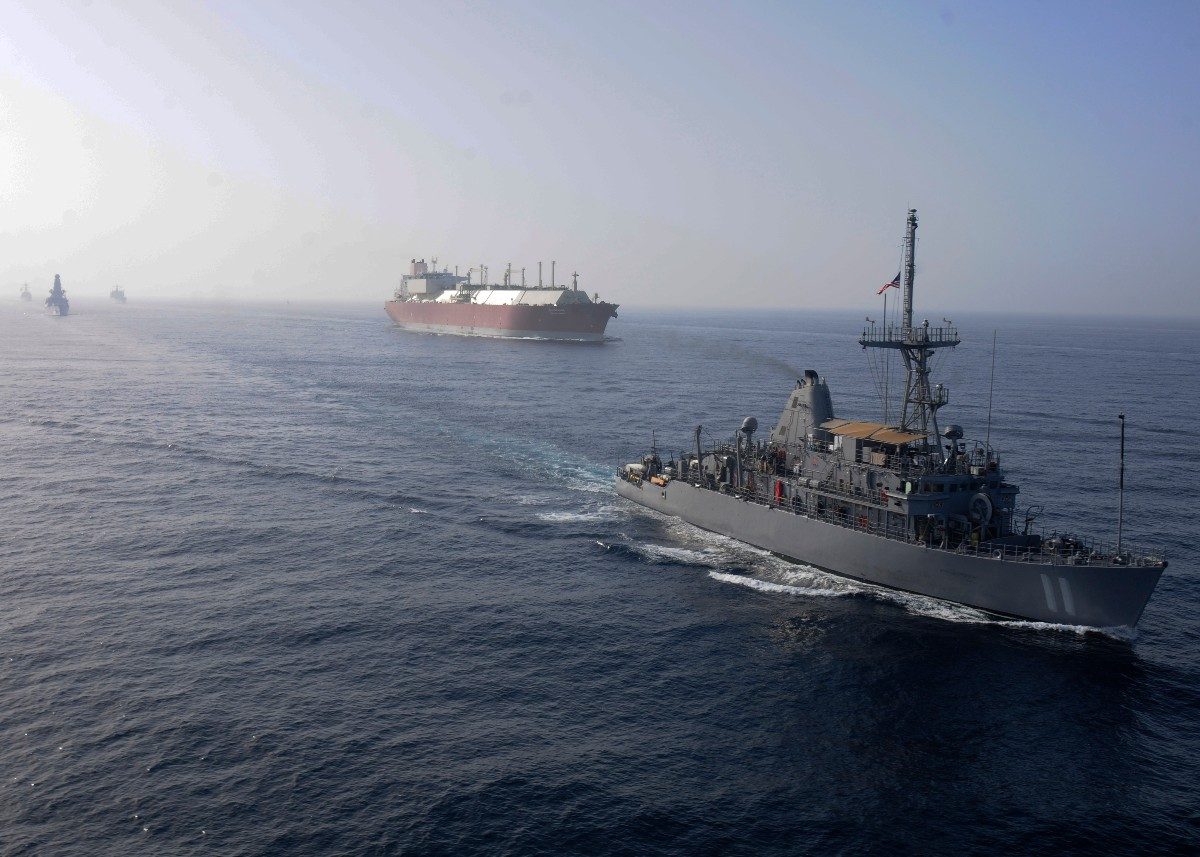 US NAVY
US NAVY
How Trade Agreements Build Peace
This post is a copy of a comment ASP submitted to the United States Trade Representative in response to the Administration’s Reviews and Report to the President on Trade Agreement Violations and Abuses, Docket No. USTR-2017-0010.
America’s trade agreements are a powerful tool in buttressing America’s national security. The United States should not walk away from trade deals in a misguided effort to fight violations and abuses.
The American military is stretched by commitments around the world. It has faced repeated deployments to successive wars in the Middle East; it is tasked with preventing a new cold war in Eastern Europe; it is “rebalancing” its military force to Asia in an effort to ensure that the Asia-Pacific region remains a region of peace while the countries in the Pacific arm for war. To alleviate the pressure on the American military, the U.S. government should apply all elements of American power to ensuring a lasting peace among our allies. Increasing trade between and among nations has proven effective over the last seventy years in building economic prosperity at home while drawing allies closer. Trade has opened once closed regimes to international standards. Trade sends the American message abroad without putting single American service member’s life on the line. America’s trade agreements have buttressed America’s national security around the world. Perhaps we should call them “Trade and Peace Agreements.”
A few examples will show the power of trade in supporting allies, reducing the threats of war, and building American prosperity.
When the Korean War began in 1950, South Korea was just an agricultural, undeveloped nation compared to the industrial strength of the North. During the war, the country was devastated. However, over the next five decades, the Republic of Korea used an export-led development strategy to grow to one of the wealthiest countries in the world, with world-beating industries. Meanwhile, North Korea devolved into an isolated, poor country vulnerable to famine. When President Bush signed the US-Korean Free Trade Agreement (KORUS FTA) in 2007, he cemented America’s long term alliance by tying our economies together. Since the agreement went into force in 2012, U.S. exports to the Republic of Korea are up 9% to $64 billion in 2016. The closeness of our economies underscores that our militaries stand shoulder-to-shoulder against the threat of war from an unstable North Korea. Pulling out or substantially changing the KORUS now, at a time of heightened threat of war on the Korean peninsula would undermine America’s alliance at a time when we need our allies to stand with us.
The opening of China to trade and investment unleashed unprecedented economic growth and created a powerful incentive for regional peace, as conflict would interrupt the trade flows that are the basis for multinational supply chains. In the last two decades throughout Asia, corrupt dictatorships have been replaced by emerging (if flawed) multiparty democracies: part of the credit for that can go to trade, as businesses would rather invest in countries that respect the rule of law.
U.S. trade with China, even if there is a significant bilateral trade deficit between our countries, has helped to cement these gains and build an expanding (if fragile) zone of peace and prosperity. Further engagement on rules-based bilateral trade with China and other countries in the region would underscore shared values and bonds of international commerce. On the other hand, an American withdrawal from international trade would undermine international peace and stability, hard-won by American service members over the decades.
Trade agreements build peace through shared values by encouraging free exchange. Trade is not only an engine of economic growth, it also encourages a people to share ideas, business practices, and culture. Trade agreements should enshrine these advances by providing assurances about property rights and business practices. As trade and investment increase, so too will travel and direct engagement. It is far harder to demonize a people as an enemy when you’re doing business with them.
Increasing trade builds peace through prosperity. When countries become rich through business and trade (as opposed to through resource exploitation), they are less likely to go to war. On the other hand, should economic growth fail, evidence shows that governments emphasize nationalist disputes, compromising regional security.
Trade builds peace through strength. The National Academies of Sciences has found that increased trade actually helps to build a more stable network of military and strategic alliances. Coalitions of like-minded countries that come together on trade will also work together on defense and security issues. These alliances will help regional powers stand up to the bullies that try to use military might to assert their will. Those who would retreat from trade are signaling American weakness, not strength.
But we should not see a trade regime as targeting certain countries. Instead, trade agreements should help enshrine a rules-based system of trade where countries cannot “race to the bottom” and flout the rules at the expense of American workers. By establishing strong labor and environmental standards in the region, American trade agreements reward countries that play by the rules. If other countries can raise their standards, all should be encouraged to join the U.S. in mutually beneficial trade agreements.
Over recent decades, our military has seen too much of the horrors of war. If the American fails to lead on a rules-based international trade regime, it will show our allies that the benefits of trade, liberalization, and engagement with the U.S. are fleeting. It would give support to those that argue interdependence is just another world for vulnerability. Trade’s real value is that it can build regions peace and stability in a world that is growing increasingly unstable.





